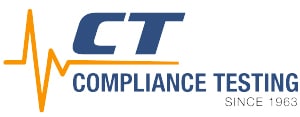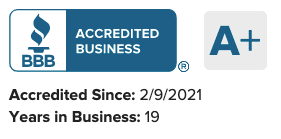Need help complying with FCC regulations? Schedule a free consultation with our team to discuss FCC testing and achieving compliance for your product, or call us on 866-540-5287 to talk to our compliance experts right away.
Get Free Answers to Your FCC Compliance Questions
Need help achieving compliance with FCC Part 15 or other FCC regulations?
Enter your name, email address and question, and our engineering team will contact you with the information you need to solve your FCC testing questions and achieve compliance for your product.
As a manufacturer, achieving compliance with the Federal Communications Commission (FCC) regulations is a key step in bringing your products to market.
FCC certification ensures that electronic devices comply with all of the United States’ standards for radiofrequency (RF) and electromagnetic interference (EMI). Not all electronic devices need to achieve FCC certification in order to go on sale in the United States, although many do.
Below, we’ve explained what FCC certification is under Part 15 of the FCC rules, as well as the FCC certification requirements and steps involved in achieving compliance.
For more information about FCC testing and certification, or to request a quote for testing your device, contact us online or call us at 866-540-5287.
What is FCC Part 15 Certification?
FCC certification refers to the process of testing your product and formally getting certification from the FCC. The FCC is the agency of the United States government that’s responsible for regulating the radiation standards of electronic devices.
Electronic devices need to comply with FCC standards, including FCC Part 15, in order to be sold in the United States. In some cases, complying with the FCC’s standards means gaining formal certification for your product.
Overview of FCC Part 15
FCC Part 15 refers to the Code of Federal Regulations, Title 47, Part 15 — a section of the FCC rules and regulations that sets standards for emissions from electronic devices, as well as other common areas of electronic device functioning.
Any electronic devices that emit radiofrequency (RF) are subject to Part 15 regulations. Devices sold in the United States need to achieve compliance with Part 15 in order to be sold legally.
Part 15 focuses on two key aspects. The first is limiting unwanted RF emissions from electronic devices. This is important for preventing interference, which can occur when a device produces significant amounts of radiofrequency.
The second is ensuring that devices achieve a minimum level of tolerance to RF interference, meaning they can withstand emission from other devices without malfunctioning.
These standards help to ensure that electronic devices used at home, as well as in industrial and commercial settings, are safe to use and designed to withstand interference without any risk of malfunction or damage.
Devices That Require FCC Certification
Most electronic devices that operate at frequencies of 9 kHz or higher are subject to FCC Part 15 regulations. Common devices that require certification include:
- Wi-Fi networking equipment
- Radio and telecommunications terminal equipment
- Mobile phones
- Cordless home phones
- Remote control transmitters
- Electromagnetic compatibility products
- Telecommunications equipment
- Office and IT equipment
- Bluetooth devices
- Walkie-talkies
Some low-power devices may need to meet verification or declaration of Supplier’s Declaration of Conformity (SDoC) standards, rather than full FCC certification.
FCC Certification Requirements & Process
Design and Pre-Testing Phase
Preparing for FCC testing and certification begins long before you actually conduct tests for your device. Many manufacturers opt to design with compliance in mind and perform pre-testing prior to working with an FCC testing lab.
Designing with compliance in mind involves identifying potential issues early in your design and development process. When combined with pre-testing, this approach can help you identify any problems with your device and solve them early, reducing time and costs.
Selecting an FCC Testing Lab
Next, you’ll need to work with an accredited testing lab to measure your product’s performance and prepare reports for the FCC. This lab will conduct tests of your device and, if it fails testing, provide guidance to help you improve your device’s performance in future.
The FCC maintains a list of accredited testing laboratories that you, as a manufacturer, can use to test your device.
At Compliance Testing, we specialize in FCC testing and certification, with more than 60 years of experience testing devices and helping manufacturers achieve compliance.
Conducting Tests of Your Device
Testing for FCC certification involves assessing your device’s RF emissions and its susceptibility to interference. A range of tests are used to measure your device’s performance, including tests of radiated emissions, conducted emissions and immunity.
Your device will need to function within specific parameters to pass these tests. During testing, a detailed test report is prepared, which is needed for compliance and certification.
The testing process can vary based on your device’s class. Class A devices, which are made to function in commercial, industrial or business environments, are subject to slightly more relaxed EMI standards and test requirements than Class B, or residential, devices.
Before conducting testing, you’ll need an FCC Registration Number (FRN). Our team can assist you in registering with the FCC and submitting the appropriate documents for your device.
Documentation & Application
During testing, your accredited testing lab will compile a detailed report, including descriptions of your device, test procedures used during FCC certification testing, and your device’s results.
This report, along with additional documentation such as manuals and technical specifications, is passed on to the FCC as part of the application process for certification.
FCC Certification & Filing
Finally, you’ll need to submit your test reports and documentation. This allows the FCC to review your testing data and determine if your device meets the standards required for compliance and certification.
As of 2015, the FCC no longer accepts direct applications for certification. Instead, your reports and documentation are submitted through a recognized Telecommunications Certification Body (TCB).
As a TCB accredited to ISO 17065:2012, we can accept applications for certification on behalf of the FCC.
After we receive your test reports and other documentation, you’ll receive a Grant of Equipment Authorization within one to two weeks, allowing you to market and sell your device in the United States.
FCC Post-Certification Requirements
After completing FCC testing and gaining certification, you’ll need to label your products, keep accurate records of your compliance, and ensure your device remains compliant while it’s sold in the United States.
Labeling & Compliance Information
By law, certified devices need to bear the FCC’s logo or identifier. Certified devices also need to display compliance information, including a statement that the devices complies with Part 15, as part of their manual and/or packaging.
Our team can help you to check your labels and packaging are compliant with FCC Part 15 and properly display the FCC identifier.
Record Keeping
As a manufacturer, you’ll need to maintain records of your compliance for a specific period. This includes documentation related to the certification process. Our team can provide information on keeping records for your device and remaining compliant with FCC Part 15.
Market Surveillance & Compliance
Finally, you’ll need to ensure that your device remains compliant in order to avoid penalties and legal action from the FCC.
The FCC conducts market surveillance, including random checks on electronic devices to test if they’re compliant. If your device is no longer compliant, you may be subject to a fine or face the loss of your device’s FCC certification.
Contact Us About FCC Testing & Certification
Completing testing and gaining FCC certification is a key step in bringing your electronic device to market in the United States.
The testing and certification requirements for your device can vary based on its class , including whether it’s viewed as a Class A or Class B device by the FCC.
As specialists in FCC testing, compliance and certification, we can help you complete testing for your device and receive certification from the FCC, allowing you to legally market your device in the United States.
Contact us online or call us at 866-540-5287 to request a free quote, ask our engineers a question, or find out more about the FCC testing and certification process for your product.



